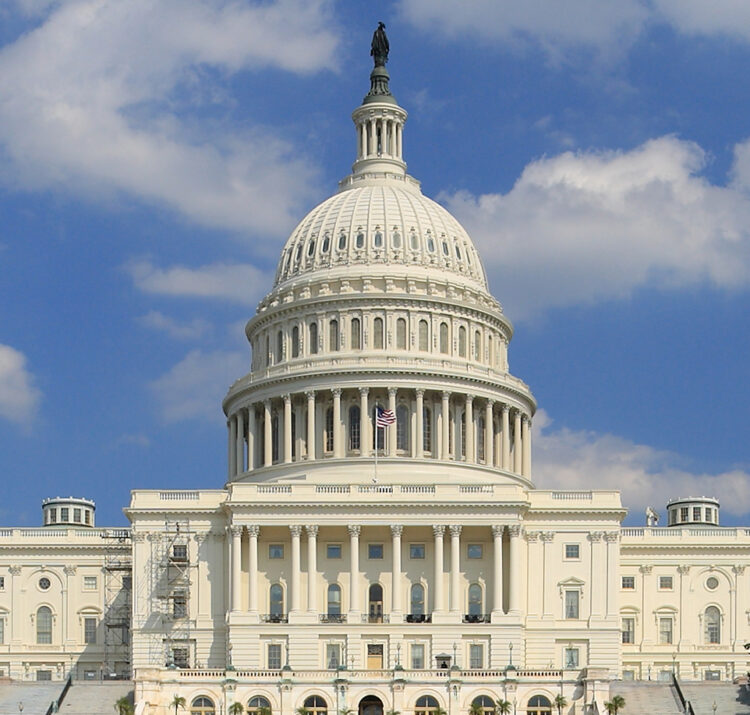It’s legal. But is it right?

Opinion
By Martin Gottlieb
What the leading Jewish lobby in Washington is doing in congressional elections raises some troubling questions. At what point does standing up for a group’s beliefs become simple bullying? Just how big a role should money play in our elections? Isn’t something wrong when millions of dollars from outside a congressional district are deployed against an incumbent who can’t raise remotely as much?
AIPAC — the American Israel Public Affairs Committee — is the core of the legendarily successful, legendarily powerful pro-Israel lobby in Washington. For decades, it has been widely credited with sustaining overwhelming bipartisan support for Israel. Lately, sustaining that support has become more complicated.
A few members of Congress are very boldly pro-Palestinian and hostile to Israel. This year, AIPAC has focused $24 million on defeating two of them in Democratic primaries, and it has been successful. The two have been described as the most prominent Black members of the left-wing progressive caucus.
Personally, I prefer the views of the two winners in those primaries to those of the defeated incumbents, Rep. Cori Bush of Missouri, and Rep. Jamaal Bowman of New York. Still, something feels wrong here.
It’s true that both Bush and Bowman have been accused of harboring antisemitism. Both have used inflammatory rhetoric such as “genocide” and “ethnic cleansing” about the war in Gaza. Bush has been accused in the Jewish press of associating with an antisemite in fundraising. But the underlying issue here is support for the Palestinians against Israel.
What AIPAC has done is certainly not illegal. For some people, that fact resolves any qualms. But whether it should be legal is another question.
Current relevant law was established in 2010 by a 5-4 decision of the U.S. Supreme Court, in a case known as Citizens United. It eliminated restrictions on “independent expenditures” by politically motivated groups, that is, expenditures by somebody other than a candidate in the race in question.
But even if it’s legal, is it right? An aphorism tells us that “politics ain’t beanbag.” One would have to look hard to find a political organization that declines to use its power in ways it can get away with.
Indeed, defenders of the AIPAC expenditures might say that critics are holding a Jewish organization to a higher standard than others. In fact, though, the AIPAC issue stands out. It has won the attention of the political world for its audacity and success.
Other interest groups have made similar single-minded efforts. But degree — the sheer amount of money — matters.
News reports have made clear that in the case of Bowman race, the ads that were purchased with AIPAC money were generally not about Israel. They did not encourage people to see the necessity of the war against Hamas. They did not say that any congressperson who’s hostile to the Israeli position should be defeated.
Instead, they focused on whatever subjects Bowman was thought to be politically vulnerable on.
Doesn’t that make the case for the AIPAC role weaker? In defending its decisions about which members of Congress to attack, AIPAC makes very clear that its only concern is with the legislator’s views on Israel.
So, in the ads, AIPAC is, in effect, pretending to care about things it doesn’t care about.
It would be one thing if a real all-out fight for political power were at hand, and the other side was throwing money in. Under those circumstances, fine; throw money in. But the lopsidedness here — the disproportion — is troubling.
The role of money in determining the outcomes of elections is often overstated. In truth, the less-funded side does sometimes win. Excessive focus on the importance of money can come close to making voters out to be a bunch of airheads, able to be influenced by the nonsense in political ads.
But, in truth, primaries do offer a special opportunity for the big-money forces. In primaries, voters are typically not so dug in, not so focused on the ideological differences between the candidates, not acting as members of partisan or ideological camps or interest groups. They are more easily influenced.
Any discussion of “Jewish money” in politics gets into dicey territory. Antisemites are always poised to point to that money to foster their arguments about Jews running the world, or whatever.
AIPAC is right not to worry about that. Plow right through it. If the people making the money decisions think they are doing the right thing, they should do it, of course. But is it right to freak out over a few members of Congress? Was it right to create a situation in which — by most appearances and most accounts — the selection of congressional representatives from Missouri and New York was determined by decisions made by a lobbying group in Washington? It doesn’t feel right.
Retired Dayton Daily News editorial writer Martin Gottlieb is advisor to The Dayton Jewish Observer.
To read the complete September 2024 Dayton Jewish Observer, click here.





